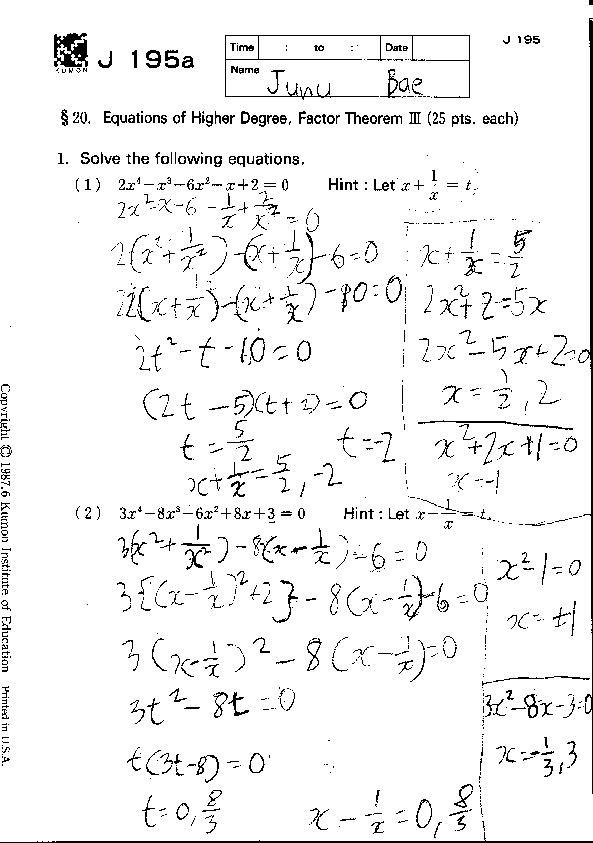The power of social media in spreading awareness and destigmatizing mental health cannot be underestimated. They can share informative content, resources, and helpline information, increasing access to mental health support. Social media also plays a vital role in raising mental health awareness and promoting advocacy. Platforms like Facebook, Twitter, and Instagram allow mental health organizations and advocates to reach a wide audience.
“Find out who is in your classes.” Thefacebook gives you the option of listing your current classes through a smart pull-down menu interface. You can list the rosters for your classes or search for people by class, so it’s easy to find out if your friends have profiles, or math kids 6th grade whether that hot chick who sits in front of you is single.
 Continued brain development in this stage of life may also make young adults more susceptible to the negative effects of social media on mental health. The Relationship between Social Media Use and Mental Health
Continued brain development in this stage of life may also make young adults more susceptible to the negative effects of social media on mental health. The Relationship between Social Media Use and Mental Health
Social media has become an integral part of the lives of young adults, and its impact on mental health has been a subject of concern and study. Various theories have been proposed to explain the relationship between social media use and mental health, shedding light on the potential consequences for young adults. Developmental Task Theory suggests that social media use can influence the achievement of crucial developmental tasks in young adulthood, such as identity formation and establishing intimate relationships.
Being mindful of the influence of social media on our relationships and overall well-being is essential for maintaining positive mental health in the digital age. While social media can enhance connections, it can also introduce new challenges and negative emotions. To summarize, social media’s impact on mental health is shaped by social theories, particularly in the context of romantic and platonic relationships.
And it doesn’t have some of Orkut’s cool features, like “crush matching” and instant discussion boards. Thefacebook is remarkably well-designed and fast, and—mostly because it cuts social networks down to the university-level—it seems to be much more versatile and interesting than Friendster and other humanity-scale social network websites. Unfortunately, everyone is still at the same level, meaning that “collecting friends” without any sort of prioritization is still present.
It’s possible to add friends from other schools, but they’re labeled separately as such (under the names of their schools.) “Search for people at your school.” Unlike Friendster, Thefacebook is primarily interested in connecting people at a given university, and so your main social network consists only of people at the same school you’re in.
It is important for individuals to be mindful of the impact of social media on their friendships and actively foster genuine connections beyond the digital realm. The constant exposure to curated highlight reels can lead to negative self-perception and a sense of isolation. While platforms like Facebook and Instagram allow us to stay connected with friends, they can also create feelings of envy, inadequacy, and social comparison. Platonic relationships, such as friendships, are also impacted by social media use.
Photomath was started by an engineer and father looking to help his children with their math homework.
The app has been downloaded more than 300 million times worldwide and Online Spelling And Vocabulary 4th Grade Teacher is available in more than 30 languages. (Reporting by Foo Yun Chee Editing by David Goodman, Elaine Hardcastle)
Blue light emitted by screens can disrupt our sleep patterns by suppressing the production of melatonin, a hormone that regulates our sleep-wake cycle. Blue Light Exposure and Mental Health
Another theory focuses on the impact of blue light exposure from electronic devices used for social media. Poor sleep quality and inadequate sleep duration have been linked to various mental health problems, including depression and anxiety. To mitigate the potential negative effects of blue light exposure, experts recommend reducing screen time before bedtime and using blue light filters or glasses.
As of June 29, 2004, Thefacebook supports Boston College, Berkeley, Brown, Boston University, Caltech, Chicago, Columbia, Cornell, Dartmouth, Duke, Emory, Florida, Georgetown, Harvard, Michigan, Michigan State, MIT, Northeastern, Northwestern, NYU, Penn, Princeton, Rice, Stanford, Tulane, Tufts, UC Davis, UCLA, UCSB, UCSD, UNC, USC, UVa, Washington, Wellesley, and Yale.
BRUSSELS, March 22 (Reuters) – Alphabet’s Google is set to gain unconditional EU antitrust clearance for its acquisition of Croatian maths app Photomath, people familiar with the matter said on Wednesday.
tech giants and start-ups have in recent months attracted intense regulatory scrutiny on both sides of the Atlantic amid worries that some deals may be killer acquisitions where the goal is to shut down nascent rivals.
Other things include options to list your high school, political orientation, residential location, contact info, major (“concentration”), birthday, and summer plans, most of which are searchable items. Interestingly, it seems to keep track of campus newspapers, so your profile will automatically cite you if your name appears in any articles.
If you liked this short article and you would like to receive more details relating to #Parentsontheyard kindly stop by our web-site.

No responses yet